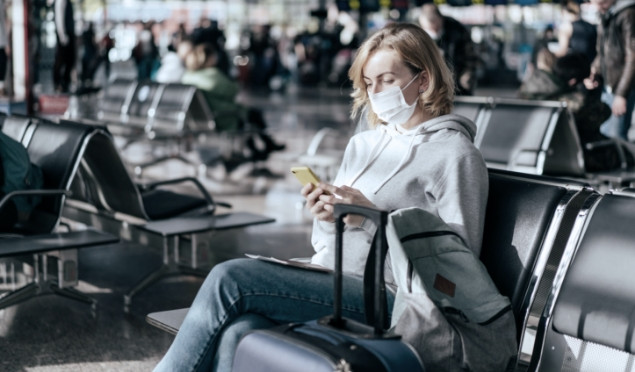What does travel insurance normally cover, and when should you top up?

Last updated on 5th January, 2024 at 01:08 pm
You have a big trip coming up, and you’ve heard that travel insurance is a must to help protect that trip. It can – but there are still two big questions you need answered: What does travel insurance cover, and when should you consider topping it up?
What should travel insurance cover?
According to Jason Veitch, head of Travel Insurance Consultants (TIC), “the basis of any travel insurance product is always emergency medical treatment, for any illnesses or injuries that might arise. For example, you get the flu or you fall off a cliff.” This includes doctor and hospital bills, in- and outpatient care and medical transportation. He stresses, however, that the product is not a medical aid and is only valid when you’re on a ‘leisure journey’ and travelling solo, with your family and/or partner in a foreign destination. If you need to come home for further treatment and you’re given the all-clear to travel, the insurance pays for your return trip to South Africa. However, if you choose to continue your holiday and you need more treatment, the costs will have to come out of your own pocket, according to medical aid provider Fedhealth.
What other benefits can travel insurance include?
Apart from emergency medical treatment, travel insurance also often includes cover for other travel risks such as cancellations and lost luggage. “When travel insurance first started out in South Africa in the 1980s, it was primarily a medical insurance. But as time went on, the product evolved and additional benefits were added,” explains Veitch. “Aside from an emergency medical benefit, a cancellation benefit and luggage benefit is definitely necessary and can be obtained when purchasing a top-up policy.”
What about COVID-19 and cancellations?
Across the world, pandemics are generally not covered by basic travel insurance plans, largely because no one ever foresaw one or thought one of this magnitude would happen in our lifetime, explains Veitch. But if you want cover, you can get it – you’ll just need to pay in a little extra.
“On more comprehensive plans, for example, a plan that you would buy through your travel agent, you get normal international journey cancellation/curtailment/extension benefits. Depending on the insurer, you can also get benefits that can be called ‘cancel for any reason’ or ‘cancel for unforeseen circumstances’. These are add-on benefits that come at an extra cost, and improve your cancellation cover, but as with everything, there are terms and conditions attached so rather speak to a travel consultant to better understand the cover options,” he says. “TIC has paid out millions of rands in COVID-19 pandemic claims, but only to policyholders who qualify.”
What does travel insurance not usually cover?
In addition to pandemics, most travel insurance won’t cover search and rescue if things go wrong. They also exclude some high-risk activities such as those involving a parachute. If you are more than 24 weeks pregnant, most insurance companies won’t pay for claims related to the pregnancy or childbirth while you are travelling. The risk to the mother and child is just too high. “We won’t cover anyone who is travelling in their third trimester,” stresses Veitch, “and we also won’t cover the medical expenses for a baby born outside South African borders under these circumstances.”
As far as pre-existing conditions go, these are covered, but it depends on your age, your health, and how the condition is being managed. “Typically, when people start heading into their 40s, either genetics or possibly lifestyle choices start catching up with them. They might also develop diabetes, Crohn’s disease, multiple sclerosis, hypertension or high blood pressure, for example. These are all pre-existing conditions, and if the condition has been identified and is being treated and controlled, and you are not travelling against the advice of your medical practitioner, your policy should cover you for up to R750 000, if you top it up.” Read the fine print.
When should you consider topping up your travel insurance?
If you take a base plan, ie the normal ‘free plan’ option, it comes with a reduced medical benefit value. In this instance, Fedhealth’s is R5 million. The top-up, however, is R20 million. “If you consider that you’re spending around R10 000 on a plane ticket, a top-up for R485 doesn’t seem that bad,” says Veitch. “We had a claim for R38.5 million which we reduced to R18.8 million from a woman who got sick with encephalitis while she was on holiday in America with her family. This is an instance where a top-up would add plenty of value.”
What factors should one consider when deciding whether to take out travel insurance or not?
“Travel insurance is strongly recommended,” says Veitch. “If you have a medical emergency overseas, you won’t find your way into a private institution and will be at the mercy of the state facility unless you have travel insurance cover. For R485, the benefits far outweigh the risks.”
Want to learn more?
We send out regular emails packed with useful advice, ideas and tips on everything from saving and investing to budgeting and tax. If you're a Sanlam Reality member and not receiving these emails, update your contact details now.
Update Now







